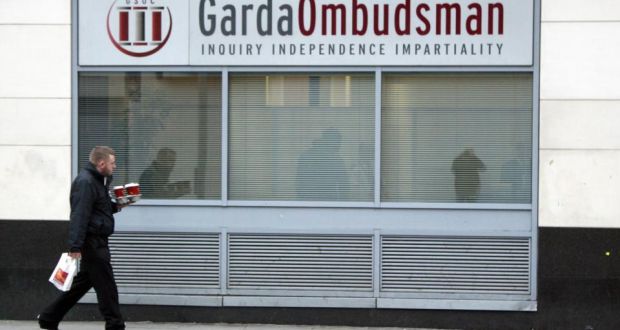The political and media rumpus created over issues relating to the Garda force has abated for the time being as the main issues have been kicked to various investigations. There were so many different strands in play that it was sometimes difficult to keep abreast of developments. It is however important with hindsight to analyse why the main protagonists such as the government and the Garda management reacted as they did, in order to clearly understand which interests they defend.
In early February, the Sunday Times revealed that the offices of the Garda Siochana Ombudsman Commission (GSOC) had conducted a thorough investigation as to whether its office had been subjected to sophisticated electronic surveillance in 2013. The widespread assumption was that there was such surveillance and that some senior elements of the Garda were responsible, the motive being to gain intelligence on a serious investigation which GSOC was conducting into Garda misconduct.
The immediate response of the Minister for Justice, Alan Shatter, and the Garda Commissioner, Martin Callinan, was to react with fury to GSOCS’s probe and instead of seeking the facts and truth of the suspicions, they put the senior officers of GSOC under severe pressure.
This was very similar to the general reaction of the Minister for Justice to serious allegations of Garda malpractice based on the complaints of Garda Sergeant Maurice McCabe who documented many internal Garda abuses from arbitrary erasure of traffic points to incompetent handling of serious criminal investigations. The uniform response of the government, that is not just the Justice Minister but the Taoiseach, the Tánaiste and many Fine Gael and Labour Ministers, has been to close ranks to protect the top management of the Garda Síochána and to denigrate, undermine and demean GSOC officials and whistleblower Sergeant McCabe, along with another whistleblower, the now retired Garda John Wilson.
The government reaction was explained by the close professional relationship between Minister Shatter and Garda Commissioner Callinan. Apparently they formed close professional links while preparing the over the top security arrangement put into operation when US President Obama and the Queen of England visited here in 2011. This may have been a factor certainly in explaining some of the dynamic of developments. However, as I explained when I spoke in the Dáil on these matter, there is a much more profound reason why the government reacted like it did.
It is because the Garda is the institution that in this capitalist State, the government relies upon – as did its predecessors –not just to deal with day-to-day normal policing actions such as traffic management and crime investigation, but, crucially, to enforce the implementation of right-wing neoliberal economic and social policies such as savage austerity and the privatisation of public resources against the opposition of ordinary people. The Garda as an institution is the arm of the capitalist state that is used to defend the interests of big business both industrial and financial. Because the suspected surveillance on GSOC and the allegations of malpractice could discredit the reputation of the Garda and weaken its authority in relation to this vital role, the political establishment in government reacted as it did.
There has been in recent years a tendency to criminalise protest against State policies and to use the Garda Síochána in a very brutal fashion to oppose legitimate protests by ordinary citizens in this State. For example, this government and its predecessors used the Garda in the most disgusting fashion to brutally repress an entire community in Mayo which was opposing the writ of giving to Shell Oil a fabulous natural resource, our natural gas wealth, with the endangerment of their community and environment.
When individual members of the Garda come forward with evidence of abuse within the force they should be protected from victimisation from management so that the truth can be clearly told. A senior barrister has been appointed by the government to look into the McCabe dossier.
However, this is not enough; the victims of the highlighted Garda malpractice all support the claims of the whistleblowers. Should any serious investigation not involve them and other citizens who have been victims of malpractice and involve ordinary working people whose taxes pay for the Garda, rather than it being confined to the exclusive Law Library which is a bastion of the establishment?
Other important issues are raised by this whole situation especially the need for democrartic control by communities and ordinary people generally over the Garda.
The Labour Party in particular stands shamed by its slavish failure to stand for a totally independent investigation into what anyone could see were blatant abuses by sections of senior Garda management.
Sections of the media have acted as a journalistic Praetorian guard for the Garda Commissioner and management undermining the complaints of legitimate whistleblowers. That is extremely consistent with the previous acts of Independent Newspapers which sacked journalist Gemma Doherty for having the audacity to question why the Garda Commissioner himself was forgiven penalty points. It is not just the Garda who need democratic supervision, but the billionaire-owned media also needs to be subjected to the democratic control of ordinary citizens to see if it could tell the truth and really represent the interests of ordinary people for a change.












